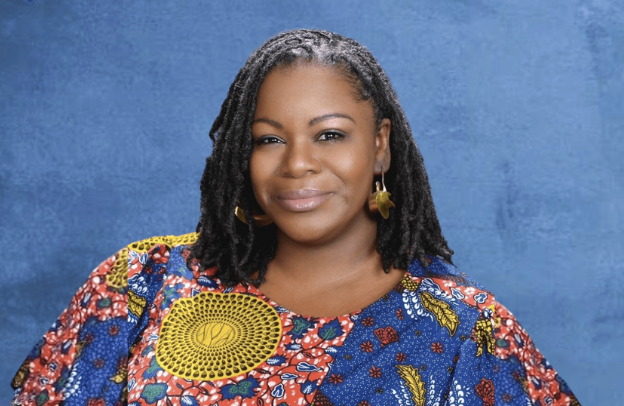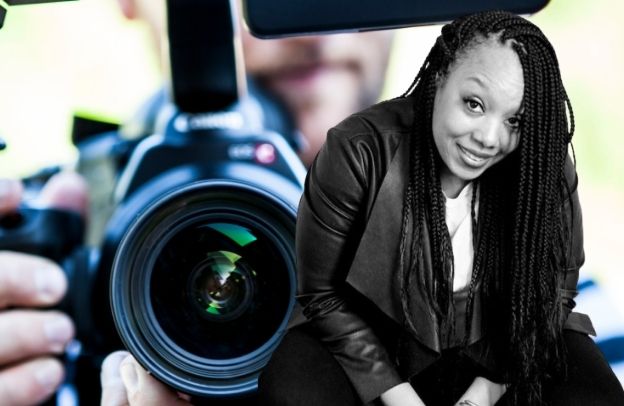The Healing Power of Storytelling in Education: How Rhonesha Blaché is Shaping the Future of Learning

Imagine a world where the stories you tell aren’t just about entertainment or history, but about healing. A place where the stories of your ancestors, your struggles, and your triumphs are woven together into the very fabric of education, business, and community. What if your business’s success could be built not just on products or services, but on the powerful stories that connect people to their deeper purpose?
Learn How to Leverage Your Story through our Story To Asset Framework.
This is the power of storytelling, and Rhonesha Blaché, is showing us how to harness it, especially within the African diaspora. See the podcast interview with Rhonesha Blaché
Blaché, an educator with nearly three decades of experience, is on a mission to bridge the worlds of storytelling and healing-centered education. She believes deeply in the power of narratives to not only inform but transform. She shared all this as a guest on the Obehi Podcast.
For African diaspora entrepreneurs, the lessons she shares can be pivotal in connecting your audience to your brand and vision on an emotional level. But how can storytelling truly help in healing, both in education and in business? And what role do your personal history and the collective stories of your heritage play in shaping your success?
In this article, we dive into the healing power of storytelling and its undeniable impact on business, community, and social change. We explore how Blaché’s work offers a roadmap for African diaspora entrepreneurs looking to leverage storytelling for social impact and success.
If you’re ready to learn how your story can light up your entrepreneurial journey, keep reading.
The Healing-Centered Approach to Education
Education isn’t just about filling young minds with facts—it’s about creating an environment where students can heal, grow, and connect with their deeper selves. This is what Blaché calls healing-centered education, an approach that integrates personal stories and lived experiences into the learning process.
But what does that look like in practice? It’s more than just teaching history—it’s about teaching you how to connect with your history and identity.
See also Unlocking Nigeria’s Agricultural Wealth: A Call to African Diaspora Entrepreneurs
For African diaspora entrepreneurs, the importance of this approach becomes clear. When we look at the educational landscape, too often, our stories are left out. Whether it’s in schools or the workplace, we’re often forced to navigate systems that don’t reflect our backgrounds, struggles, or triumphs.
Rhonesha Blaché’s journey, rooted in overcoming racism in Arizona, is one of many stories that speak to the resilience of African diaspora communities. Blaché grew up in a state where racism was still thriving, and yet, her mother instilled in her a belief in her own strength and beauty.
These formative lessons and her exposure to deep-rooted, emotional narratives in school laid the foundation for her work in education.
She shares a powerful memory from her childhood about her school’s resistance to celebrating Martin Luther King Jr. Day, even when Rosa Parks was present. That story isn’t just about the civil rights movement; it’s about a young girl realizing the power of resistance and the importance of raising your voice against systemic oppression.
See also Why You Need a Life Mission: 3 Lessons from Martin Luther King Jr.
This kind of emotional connection is what Blaché believes is essential in education. By including stories like these, we can create a more empathetic, connected, and ultimately healing learning environment.
This approach holds great promise for entrepreneurs. Storytelling can be a tool for dismantling barriers, especially in environments where the dominant narrative often silences or misrepresents marginalized communities. By bringing your own story into your business practices, you create a space where others can see themselves in your journey and feel empowered to contribute their own.
Telling Stories That Connect Us to Our Past
One of the most powerful elements of storytelling is its ability to reconnect us with our past. Blaché speaks about how history is deeply embedded in our collective consciousness, especially for the African diaspora.
She mentions the sacred space of Congo Square in New Orleans, an iconic landmark that played a significant role in the survival and resistance of enslaved Africans in the Americas.
Blaché describes her emotional connection to the twisted oaks that surround the square, pointing out how these trees symbolized a direct link to the past, carrying with them the stories of struggle and survival.
For African diaspora entrepreneurs, understanding the weight and importance of history is crucial to building a brand that resonates deeply with others. The stories of your ancestors—whether they were freedom fighters, innovators, or builders—carry power. You can tap into that power to inspire your customers, clients, and community members.
This isn’t just about heritage for heritage’s sake; it’s about understanding how history shapes present-day struggles and successes. Research indicates that consumers are increasingly drawn to businesses that reflect their values.
In fact, a 2019 study by Nielsen found that 59% of global consumers prefer to buy products from companies that are committed to making a positive social and environmental impact. Telling your story can make your brand more relatable and create emotional bonds that go beyond the transactional.
How Storytelling Can Break Boundaries in Education and Business
Rhonesha Blaché’s story isn’t just about overcoming personal challenges—it’s about breaking barriers in the educational system. One powerful moment she shared on the Obehi Podcast was when, as a student, her math teacher was instructed to slow down the curriculum because their high-performing students were outpacing other schools.
See also Collaborative Approaches to Achieving Standardized Quality In Global Education
This experience revealed a systemic issue: instead of uplifting struggling schools, the focus was on limiting the progress of others.
This kind of limitation is not just an educational issue; it’s a business issue as well. The corporate world often sets boundaries based on assumptions about who should succeed, especially within marginalized communities. African diaspora entrepreneurs can relate to this experience, as they too often face systemic challenges and a lack of resources.
But storytelling allows entrepreneurs to disrupt those boundaries. By telling your story, you can challenge the status quo and present a counter-narrative—one where success isn’t limited by your background or identity.
Blaché’s experiences serve as a reminder that stories can break down the barriers that often restrict growth and opportunity. For business owners in the African diaspora, embracing storytelling can help challenge industry norms and present a new vision for success.
It allows you to carve out your own space, connect with people on a deeper level, and drive social change.
Practical Steps for Leveraging Storytelling in Your Business
Now that you understand the power of storytelling, how can you apply it to your own business? The first step is understanding that your story is valuable. Whether it’s rooted in overcoming challenges, embracing your heritage, or navigating the entrepreneurial landscape, your narrative has the power to resonate deeply with others.
- Reflect on Your Journey: What have you learned through your entrepreneurial path? What challenges have you faced, and how have you overcome them? This will give you the authenticity that your audience craves.
- Build Emotional Connections: Craft stories that invite people into your world. Share personal anecdotes, struggles, and triumphs. This will make your audience feel like they are a part of your journey.
- Incorporate Cultural Narratives: African diaspora entrepreneurs have a rich history that can serve as both inspiration and a call to action. Use stories of resilience, community, and tradition to weave deeper meaning into your brand.
- Connect Your Story to Your Business Mission: Your story should align with your business goals. If you aim to empower marginalized communities, for example, show how your background and experiences have shaped your desire to make an impact.
Conclusion: Your Story is the Key to Your Success
Storytelling isn’t just an art form—it’s a strategy. By embracing your personal and cultural narratives, you can unlock new levels of engagement, trust, and loyalty.
For African diaspora entrepreneurs, this is an opportunity to break free from limitations, connect with your audience on a deeper level, and create a business that reflects your values and mission.
Rhonesha Blaché’s work in healing-centered education teaches us that the stories we tell have the power to heal, inspire, and create lasting change. Now, it’s your turn. What story will you tell?
Learn How to Leverage Your Story through our Story To Asset Framework.





